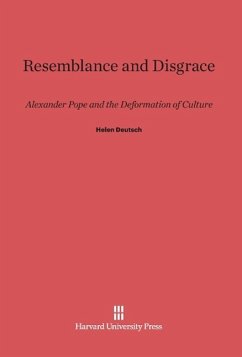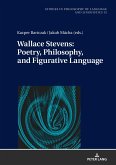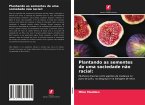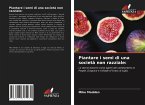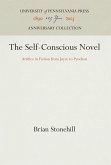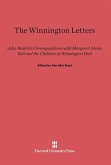Like the miniatures of which Pope was so fond, the book is at once particular in its focus and wide-ranging in its conceptual scope. While drawing on recent feminist, historicist, and materialist criticism of Pope, as well as current theoretical work on the body, it also attends closely to the local ambiguities of the poet's texts and cultural milieu, details often lost to critical view. The result is a revitalized--and broadened--reading of Pope, and of our understanding of the processes of authorship. By focusing on the process by which ideas of authority and authenticity took shape at specific moments in Pope's career, Resemblance and Disgrace calls into question distinctions between theoretical abstractions and material details, between literary originality and critical derivation, following Pope's own example of rewriting intellectual boundaries as creative opportunities.
Deutsch is a young critic of unusual intelligence. She takes excellent advantage of both the fact of Pope's physical deformity and his own self-conscious deployment of it to explore issues of the relation of body to self that are also of wide current interest. She considers how Pope collects fragments of the cultural past, then proceeds to stamp them with his own personal, individual, disfigured image in order to declare his ownership of them. Her overall project is coherent and unified, her writing often stylish, and one has the sense that the various facts of the jewel of Pope's identity are being lovingly rotated before one's eyes.
This is a fresh and highly intelligent study of a good range of Pope's poetry: The Rape of the Lock, the Epistles to Burlington, Bathurst, and a Lady, the Horatian imitations (including To Arbuthnot and the Dialogues), with a section on Pope's grotto and some limited attention to An Essay on Man and The Dunciad...The strength of the book lies in the author's powerful intelligence and her vivid engagements with the texts...For scholars wishing to approach Pope through a postmodern lens, it should prove exciting and profitable. Others, surprised to find quotations from de Mann and Lacan acting as havens of well-argued simplicity in this generally fevered intellectual climate, will find it well worth their attention.
This is a fresh and highly intelligent study of a good range of Pope's poetry: The Rape of the Lock, the Epistles to Burlington, Bathurst, and a Lady, the Horatian imitations (including To Arbuthnot and the Dialogues), with a section on Pope's grotto and some limited attention to An Essay on Man and The Dunciad...The strength of the book lies in the author's powerful intelligence and her vivid engagements with the texts...For scholars wishing to approach Pope through a postmodern lens, it should prove exciting and profitable. Others, surprised to find quotations from de Mann and Lacan acting as havens of well-argued simplicity in this generally fevered intellectual climate, will find it well worth their attention.

